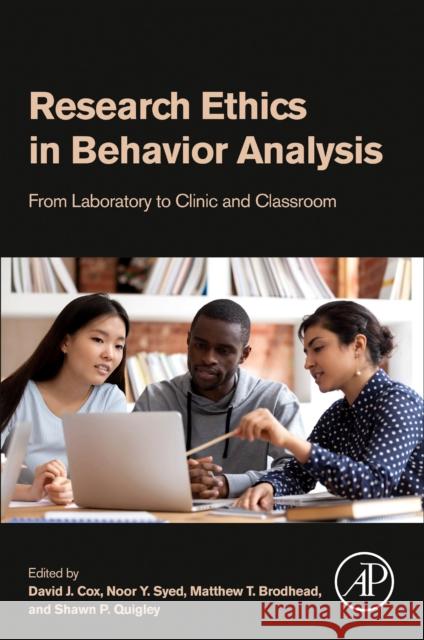Research Ethics in Behavior Analysis: From Laboratory to Clinic and Classroom » książka
topmenu
Research Ethics in Behavior Analysis: From Laboratory to Clinic and Classroom
ISBN-13: 9780323909693 / Angielski / Miękka / 2022
Kategorie:
Kategorie BISAC:
Wydawca:
Academic Press
Język:
Angielski
ISBN-13:
9780323909693
Rok wydania:
2022
Oprawa:
Miękka
Wolumenów:
01
Dodatkowe informacje:
Bibliografia
Wydanie ilustrowane
Wydanie ilustrowane











